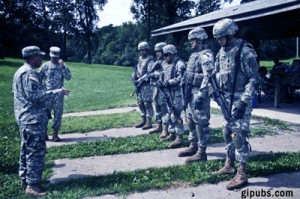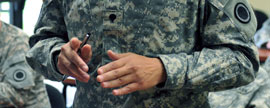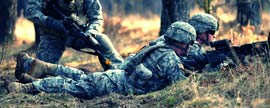Verbal Counseling Guidelines
Normally when we think of counseling we think in terms of a written counseling form. Believe it or not you counsel Soldiers every day. A formal verbal counseling could be as simple as calling a Soldier in and having them stand at parade rest in front of you as you discuss, coach, mentor, train, correct substandard performance, and reward for exceptional performance.
Tips for conducting a verbal counseling session
- Keep it short and to the point!
- Make a note in your leader book about the time/date of your discussion. Taking notes is vital because:
- You may wish annotate the item on the Soldier’s monthly counseling
- It helps show that you have done your job as a leader and tried to correct the problem at the lowest level
- It will shows the soldier you care about them
- You may wish to keep track of it for future reference.
- Let’s say the Soldier is late to work with no excuse. You verbally counsel and make a note. Three days later the same thing happens. You then type up a written counseling and in it, you state that you verbally counseled the soldier for the same reason on ___{Insert Date/Time}.
By making a note in your leader book in front of the soldier they understand that you are serious and expect correction.
- Provides you and the chain of command with a record of actions/corrective training
- Provides a level of credibility to a situation that may be elevated.
- When you can look in your leader book and state on date and time I verbally counseled ____ about ____, senior leaders will receive that as positive action.
Verbal counseling is an excellent tool if used properly. Use it to motivate soldiers to continue exceptional performance or correct substandard performance. Remember verbal counseling can be as simple as an on the spot correction, a pat on the back, or a frank discussion.
You may also find this information useful: Is verbal counseling a type of counseling? A good reference on the subject of counseling is a book entitled The Mentor















